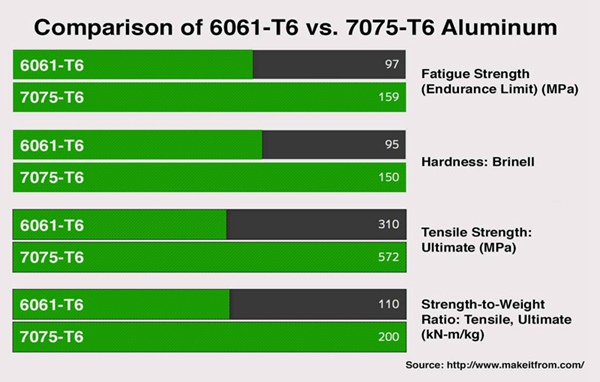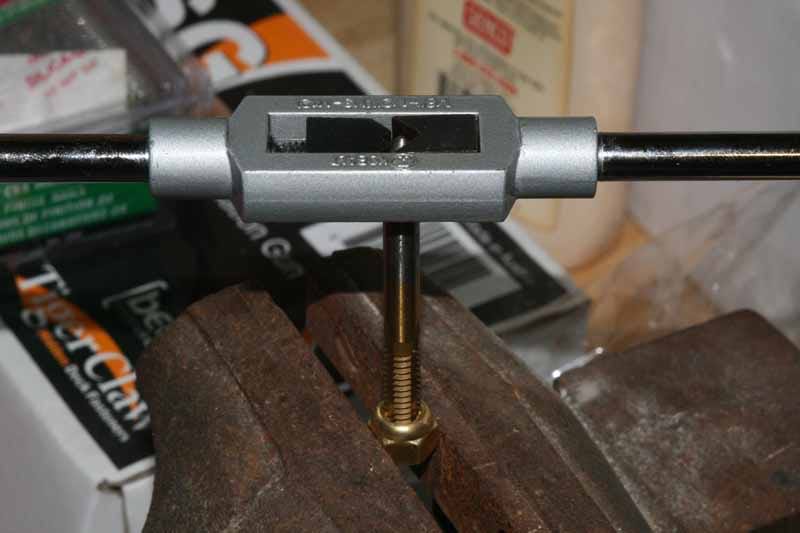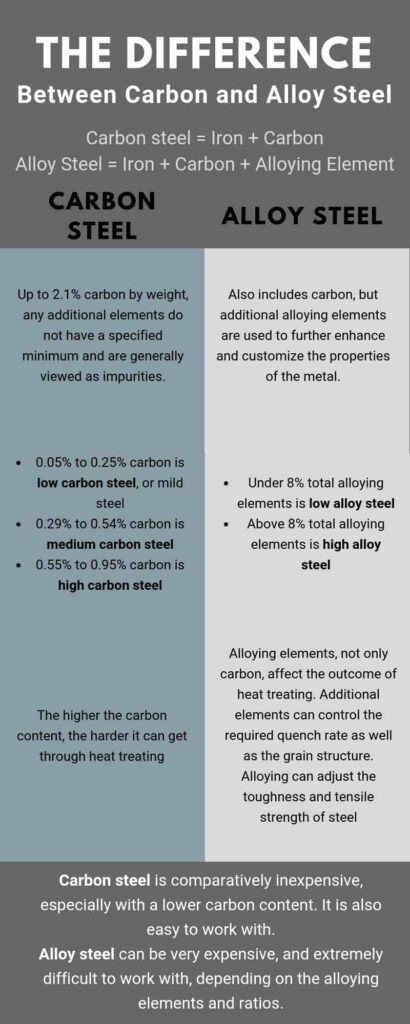Table of Contents
When it comes to choosing the right material for your project, it’s important to consider the strength and performance of different options. Two popular choices in the world of engineering and manufacturing are 7075 aluminum and 6061 aluminum. In this article, we’ll dive into a detailed comparison of these two materials and explore their unique characteristics. So, whether you’re a professional engineer or just someone curious about the world of metals, buckle up and get ready to uncover the secrets behind 7075 aluminum vs. 6061!
Let’s start by taking a closer look at 7075 aluminum. This high-strength alloy is often referred to as “aircraft-grade” aluminum due to its excellent strength-to-weight ratio. With its impressive tensile strength and stress corrosion resistance, 7075 aluminum is a top choice for applications that require durability and reliability. On the other hand, 6061 aluminum is known for its versatility and ease of machining. It offers good strength and corrosion resistance, making it suitable for a wide range of applications. So, whether you’re designing aerospace components or crafting bicycle frames, understanding the differences between these two alloys is crucial. Join us as we explore the world of 7075 aluminum and 6061 aluminum, and discover which material reigns supreme in terms of strength and performance.
7075 Aluminum vs. 6061: Strength and Performance Comparison
When comparing 7075 aluminum and 6061 aluminum, it’s important to consider their strength and performance characteristics. Both alloys are widely used in various industries, but they have distinct differences.
7075 aluminum is known for its exceptional strength and high resistance to corrosion. It is commonly used in aerospace applications and high-stress structural parts.
On the other hand, 6061 aluminum offers good strength and excellent machinability. It is often used for general-purpose applications and is easily weldable.
In a strength comparison, 7075 aluminum outperforms 6061 aluminum due to its higher tensile strength and yield strength. However, 6061 aluminum is more malleable and easier to form.
In conclusion, the choice between 7075 aluminum and 6061 aluminum depends on the specific requirements of your project. Consider factors such as strength, machinability, and corrosion resistance to determine the most suitable alloy for your application.
7075 Aluminum vs. 6061: Strength and Performance Comparison
When it comes to choosing the right aluminum alloy for your project, two popular options are 7075 aluminum and 6061 aluminum. Both alloys have their own unique strengths and characteristics that make them suitable for different applications. In this article, we will compare the strength and performance of 7075 aluminum and 6061 aluminum to help you make an informed decision.
Strength and Durability
7075 aluminum is known for its exceptional strength, making it one of the strongest aluminum alloys available. It has a high tensile strength and is often used in aerospace applications where strength and durability are crucial. This alloy is also resistant to stress corrosion cracking, which further enhances its longevity.
On the other hand, 6061 aluminum is not as strong as 7075 aluminum but still offers good strength and durability for a wide range of applications. It has a lower tensile strength compared to 7075 aluminum but provides excellent resistance to corrosion. 6061 aluminum is commonly used in structural applications, such as in the construction of buildings, bridges, and automotive components.
Comparison Table: Strength and Durability
To better understand the differences in strength and durability between 7075 aluminum and 6061 aluminum, let’s compare their properties in a table:
| Properties | 7075 Aluminum | 6061 Aluminum |
|---|---|---|
| Tensile Strength | High | Good |
| Corrosion Resistance | Excellent | Excellent |
| Stress Corrosion Cracking Resistance | High | N/A |
As seen in the table, 7075 aluminum has a higher tensile strength and better resistance to stress corrosion cracking compared to 6061 aluminum. However, both alloys offer excellent corrosion resistance.
Machinability
When it comes to machinability, 6061 aluminum is known for its excellent workability. It can be easily machined, welded, and formed into various shapes and sizes. This makes it a popular choice for manufacturers who require intricate and precise components.
On the other hand, 7075 aluminum is more challenging to machine due to its higher strength. It requires specialized machining techniques and tools, making it less suitable for complex machining operations. However, with the right equipment and expertise, it can still be machined effectively.
Benefits of Machinability
The machinability of 6061 aluminum offers several benefits, including:
– Ease of fabrication: 6061 aluminum can be easily cut, drilled, and shaped, allowing for efficient fabrication processes.
– Cost-effective production: Its machinability reduces production time and costs, making it a cost-effective choice for manufacturers.
– Versatile applications: The ability to machine 6061 aluminum into various shapes and sizes opens up a wide range of applications in industries such as automotive, aerospace, and consumer goods.
Weight and Density
In terms of weight and density, 7075 aluminum is slightly denser than 6061 aluminum. This means that for the same volume, 7075 aluminum will weigh more than 6061 aluminum. However, the difference in weight is relatively small and may not be significant for many applications.
The density of 7075 aluminum is approximately 2.81 g/cm³, while the density of 6061 aluminum is around 2.70 g/cm³. This slight difference in density can be attributed to the varying alloying elements and composition of the two alloys.
Comparison of Weight and Density
To illustrate the difference in weight and density between 7075 aluminum and 6061 aluminum, let’s compare their values in a table:
| Properties | 7075 Aluminum | 6061 Aluminum |
|---|---|---|
| Density | 2.81 g/cm³ | 2.70 g/cm³ |
| Weight (per unit volume) | Higher | Lower |
As shown in the table, 7075 aluminum has a slightly higher density and weight compared to 6061 aluminum. However, the difference is minimal and may not have a significant impact on most applications.
Conclusion
In conclusion, both 7075 aluminum and 6061 aluminum have their own strengths and advantages. 7075 aluminum offers exceptional strength and durability, making it suitable for applications where high strength is required. On the other hand, 6061 aluminum provides good strength, excellent corrosion resistance, and superior machinability, making it a versatile option for various industries.
When choosing between 7075 aluminum and 6061 aluminum, consider the specific requirements of your project and the properties that are most important to you. Whether it’s strength, machinability, or corrosion resistance, both alloys have their own unique characteristics that can meet different needs.
Key Takeaways: 7075 Aluminum vs. 6061 – Strength and Performance Comparison
- 7075 Aluminum is stronger than 6061 Aluminum.
- 6061 Aluminum is more corrosion-resistant than 7075 Aluminum.
- 7075 Aluminum is commonly used in aerospace applications due to its high strength.
- 6061 Aluminum is versatile and widely used in various industries.
- Both alloys have good machinability, but 6061 Aluminum is easier to weld.
Frequently Asked Questions
What is the difference between 7075 aluminum and 6061 aluminum?
7075 aluminum and 6061 aluminum are both commonly used in various industries, but they have some key differences. One major difference is their composition. 7075 aluminum is an alloy primarily composed of zinc, while 6061 aluminum is an alloy primarily composed of magnesium and silicon. This difference in composition leads to variations in their strength and performance.
Another difference between the two is their density. 7075 aluminum has a higher density compared to 6061 aluminum. This higher density contributes to its higher strength and harder properties. On the other hand, 6061 aluminum has a lower density, making it more lightweight and easier to work with in certain applications.
Which aluminum alloy is stronger, 7075 or 6061?
When it comes to strength, 7075 aluminum is generally considered to be stronger than 6061 aluminum. Its higher density and alloy composition contribute to its superior strength properties. 7075 aluminum is often used in applications that require high strength, such as aerospace components, bicycle frames, and firearms.
While 6061 aluminum is not as strong as 7075 aluminum, it still possesses good strength characteristics and is widely used in various industries. It is commonly used in applications where strength and lightweight properties are both important, such as automotive parts, boat fittings, and sports equipment.
How do the performance characteristics differ between 7075 and 6061 aluminum?
In terms of performance, 7075 aluminum exhibits excellent fatigue resistance and is known for its ability to withstand high-stress environments. It also has a high resistance to corrosion, making it suitable for outdoor and marine applications. However, due to its hardness, it may be more difficult to machine and form compared to 6061 aluminum.
6061 aluminum, on the other hand, offers good corrosion resistance and is easier to work with. It has excellent weldability and can be easily machined and formed into various shapes. Its versatility and balanced performance characteristics make it a popular choice in a wide range of applications.
Which alloy is more commonly used in the industry?
Both 7075 aluminum and 6061 aluminum are commonly used in various industries, but their usage differs depending on the specific requirements of the application. 7075 aluminum is often used in high-strength applications where durability and toughness are paramount, such as in aerospace and defense industries.
6061 aluminum, on the other hand, is widely used in industries where a combination of strength, lightweight properties, and ease of fabrication is desired. It is commonly found in automotive, construction, and consumer goods industries. Its availability and cost-effectiveness also contribute to its popularity.
Which alloy should I choose for my project?
The choice between 7075 aluminum and 6061 aluminum ultimately depends on the specific requirements of your project. If you require maximum strength and durability, especially in high-stress applications, 7075 aluminum would be a suitable choice. However, keep in mind that it may be more challenging to work with due to its hardness.
If your project requires a balance between strength, lightweight properties, and ease of fabrication, 6061 aluminum would be a suitable choice. It offers good strength characteristics while being more malleable and easier to work with compared to 7075 aluminum. Consider the specific demands of your project and consult with industry professionals to make an informed decision.
Final Summary: Choosing Between 7075 Aluminum and 6061 Aluminum
After comparing the strength and performance of 7075 aluminum and 6061 aluminum, it is clear that both alloys have their own unique advantages and applications. If you’re looking for a material with exceptional strength and durability, 7075 aluminum is the way to go. With its high tensile strength and resistance to fatigue, it is commonly used in aerospace applications and high-stress environments. The trade-off, however, is that 7075 aluminum is more difficult to work with and is not as corrosion-resistant as 6061 aluminum.
On the other hand, if you prioritize versatility and corrosion resistance, 6061 aluminum is an excellent choice. It offers good strength and machinability while also being more resistant to corrosion, making it suitable for a wide range of applications, including structural components, marine equipment, and automotive parts. Additionally, 6061 aluminum is easier to weld and form, making it more accessible for various manufacturing processes.
In conclusion, the choice between 7075 aluminum and 6061 aluminum ultimately depends on the specific requirements of your project. Consider the level of strength, durability, and corrosion resistance needed, as well as the ease of fabrication. With the right understanding of their properties and applications, you can confidently select the aluminum alloy that best suits your needs.
Request a quote today!
[contact-form-7 id="1578" title="Contact form"]
Please compress the file into a ZIP or RAR file before uploading. Alternatively, send through your RFQ by email.
enquires@unitymanufacture.com





